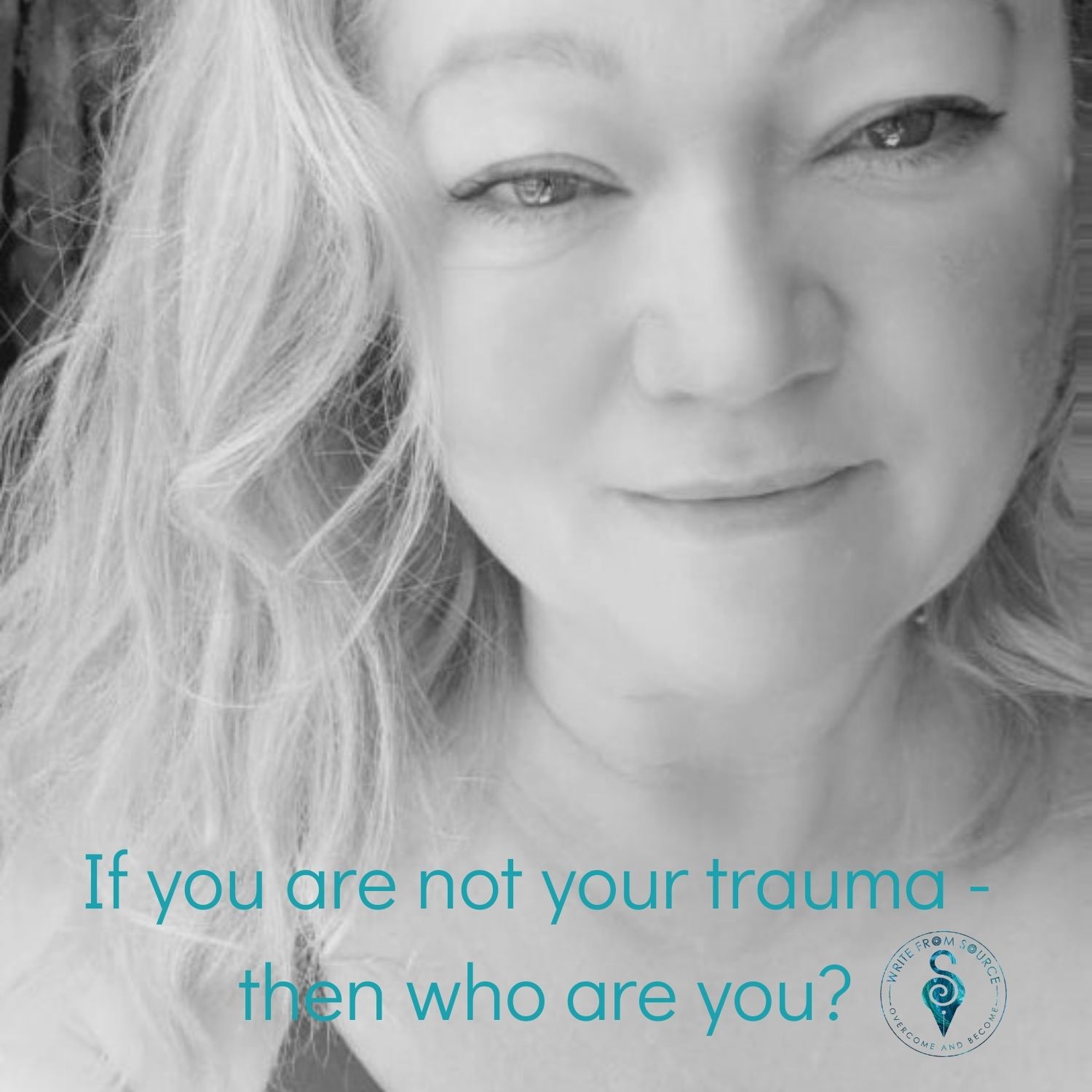This could be a confronting writing exercise for you – or it could be exciting and liberating. So grab your journals and remember to date the page. This one is going to take you deep.
One of the most illuminating moments of my life was when the trauma counsellor said, ‘You are not what happened to you’. Let that sink in for a moment. You may have had an accident that changed your life – but you are not that moment in time. It’s part of your story – yes. But not the whole of who you are. Don’t get me wrong. I’m not saying I believed her at that moment but it trickled through somewhere. Over time we discussed it more and I began to see what she meant. More importantly, I began to believe it.
The scariest moment (apart from all the moments that finally got me to the counsellor’s consulting rooms ) was when she gently told me my coping mechanisms were not actually ‘me’ either. Yes, it was me physically – I was ‘responsible for my actions – but the true ‘me’ – the ‘me’ I would have been without those traumas was underneath there somewhere – hiding until it was safe to come out – and just ‘be’.
Forget about the ‘harmful’ coping mechanisms’ – it scared me to think that perhaps my whole identity – the one good thing I believed about myself as a writer – was somehow on shaky ground – something I manufactured to keep me safe – and sane. Was I not meant to be a writer? Would I – could I have been something completely different? I didn’t know how to feel about this.
So, I did what I always do when my head becomes a tangle of thoughts and emotions. I wrote my way through this revelation so I could unravel it all and see it on the page.
I journeyed through some tough terrain I can tell you. At first, I was full of gut-wrenching grief for the person I should have become – (whoever she was) – for the life I had really wanted if it hadn’t been directed elsewhere. Then I became angry for the very first time – I had never dared be angry before at ‘them’ – at the perpetrators of various acts – acts that that had been done to me – but nonetheless led me to believe these acts were ‘me’. They defined me. And I judged ‘me’ accordingly.
Not all coping mechanisms are ‘bad’. Some are harmful yes – but it’s all about degrees of harm. To an outsider the drug addict may look like they are causing themselves irreparable damage – but if the alternative is they might otherwise kill themselves – then who are we to judge a good and bad coping mechanism? If we have a strong survival instinct, we adapt in whichever way we can and often way beyond the point the perceived threat has passed.
And what about the coping mechanisms that are praised and supported by our western culture. Being busy all the time. Being there for others over and above your own needs. Being a perfectionist. Being addicted to exercise, work, cosmetic surgery… and the list goes on. These are much harder to spot because we see them as ‘good’.
So, what if writing was ‘simply’ a coping mechanism as a child – I had survived hadn’t I? Poetic in some ways that I made my living from writing as an adult – it supported me and my daughter through tough times. Writing was literally my lifeline – it helps me see things clearly – so why discard it as something that was no longer required now?
Through my journaling and expressive writing, I remembered the love of learning new words – long before I started school. I remembered the joy of reading and exploring new worlds, long before I read spiritual or self-development books. Whether or not I had the natural ability I now realised didn’t matter. I had worked hard at my craft. It was a welcome part of me I had nurtured – so this ‘coping mechanism’ could stay, if indeed that’s what it was. It was part of me. It was a passion I had worked hard for.
I soon realised what a gift this deep exploration and discovery was. Sifting through the various ‘coping mechanisms’ from cigarettes, to wine, to patterns of working so hard and asking for so little in return, over-reactions and more besides. I looked at each one and ‘felt into’ how it made me feel now. As I dismantled the ‘me’ I thought I was, brick by brick, I had the power to see which pieces of the story I wished to keep. It’s still a work in progress but I decided to keep the hard-won treasures and see the beauty in them. I even kept some of the painful traumas – but I re-framed and healed the experience so I could help others heal without having to go back and inhabit my old story
Your traumas are not who you are. Your coping mechanisms are not who you are. You can write a new story. But while it’s a moment of freedom when you truly understand the truth of this – it can be liberating or scary to look in the mirror and ask, if you are not what happened to you, then ‘Who are you?’ Me? Well, I’m still a writer but it’s been a while since I touched a cigarette.

